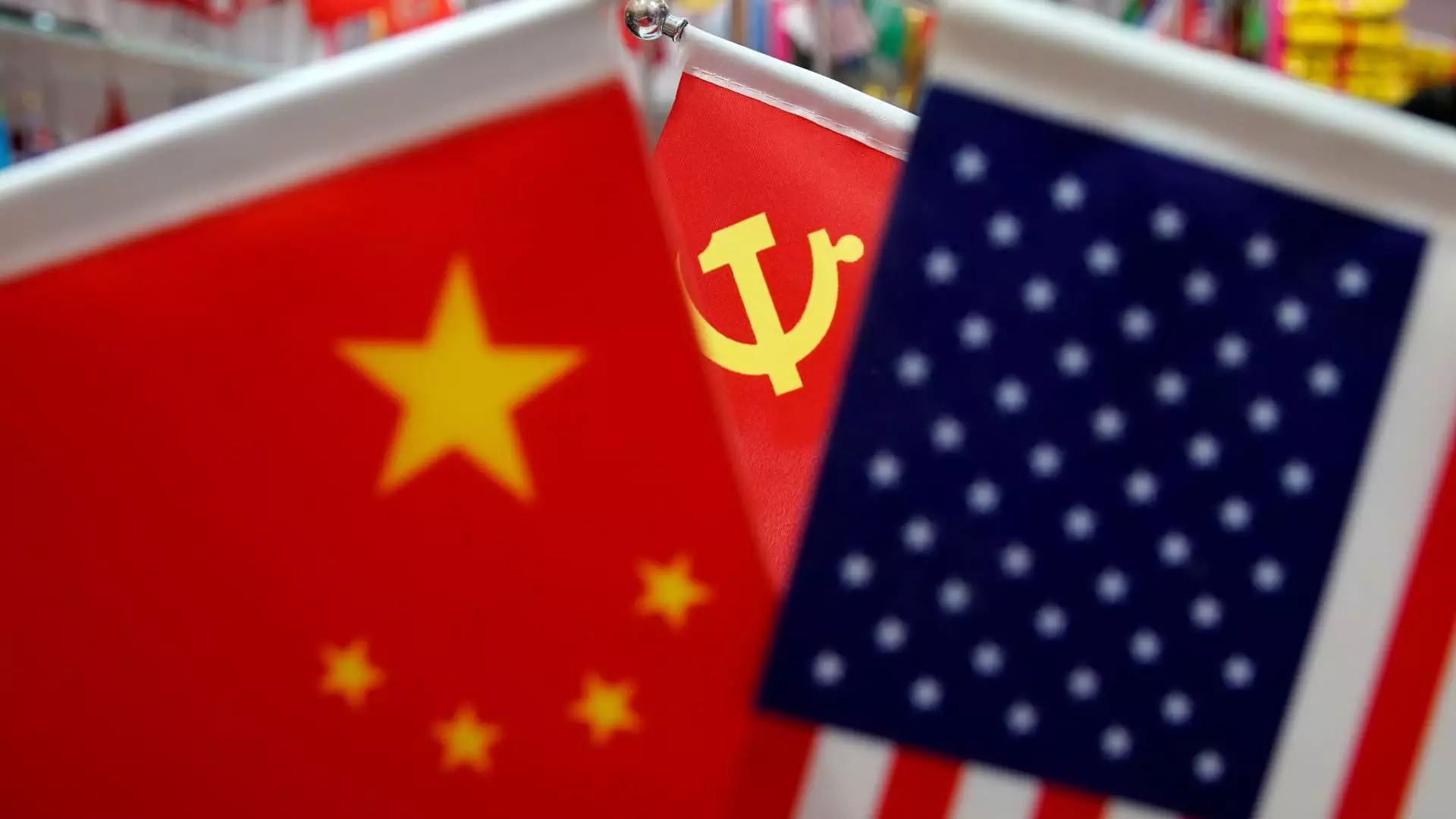In the labyrinth of global commerce, few relationships are as pivotal yet perplexing as that of the United States and China. The recent remarks from President Donald Trump paint a vivid picture of the challenges that lie ahead. As tensions escalate, the President candidly expressed, through his Truth Social account, the inherent difficulties in negotiating with Chinese President Xi Jinping. He described Xi as “VERY TOUGH” and “extremely hard to make a deal with” — sentiment that encapsulates the brewing complexities that continue to strain their bilateral relations. Such public declarations are not mere rhetoric; they signal the profound hurdles embedded in diplomatic dealings, emphasizing the need for strategic, transparent communication rather than emotional outbursts.
Stalled Conversations and Evolving Strategies
Trump’s administration has indicated that trade discussions are at a standstill, with Treasury Secretary Scott Bessent confirming that without direct involvement from the two leaders, any progress appears unlikely. This situation creates a paradox. On one hand, both nations require cooperation to address mutual challenges, like trade imbalances and technological competition; on the other hand, they remain entrenched in an adversarial stance, each accusing the other of violating previous agreements made during a delicate negotiation process. When a complex web of tariffs and existing trade barriers is created, any attempt to unravel it necessitates not just negotiation but trust — something that seems increasingly elusive.
The specific context of the trade agreement made in Switzerland is illustrative. It included a tentative 90-day hiatus on tariffs, indicating a willingness to de-escalate from both sides. However, this good faith gesture was undercut by China’s persistent restrictions on rare earth exports and America’s aggressive moves to limit China’s access to advanced technologies. Markedly, the revocation of visas for Chinese students represents not just an economic tactic but also a cultural and educational restriction, demonstrating a broader strategy to contain China’s influence.
China’s Diplomatic Maneuvers
China has been assertively playing its diplomatic cards since the trade discussions began to sputter. The statements from Chinese Foreign Minister Wang Yi during his meeting with U.S. Ambassador David Perdue reveal an underlying strategy to position Beijing as the reasonable party amid tensions. Wang’s assertion that the U.S. measures were “groundless” points to a categorical refusal to acknowledge culpability while simultaneously asking the U.S. to rein in its expectations and actions. Such posturing reflects China’s broader aim of attempting to set the narrative: if U.S. relations deteriorate further, it will be Washington’s responsibility to repair the damage.
The near flirtation with a phone call between Trump and Xi could symbolize more than mere communication; it could serve as a lifeline for both leaders to divert from a destructive path. Analysts like Neo Wang suggest that Trump’s apparent eagerness to engage with Xi is less about a strategic breakthrough and more about managing reputations—both national and personal. Without a commitment from the U.S. to avoid surprises during the call, any discussions risk exacerbating the ongoing animosity.
Bilateral Tensions and Broader Implications
The growing discourse surrounding trade, technology, and immigration reflects the multifaceted nature of U.S.-China relations. Trump has consistently highlighted areas of concern—ranging from trade imbalances to the pressing issue of fentanyl trafficking—that necessitate urgency in negotiations. The interconnection between these issues underscores a larger theme: the intertwining of economics and national security in the 21st century.
As both nations grapple with their respective domestic and international narratives, what looms large is a critical question: can they reconcile their competing interests to foster a relationship grounded in mutual respect and cooperation? Failure to do so may lead to continued economic estrangement and destabilization, not just in bilateral terms but across global markets.
The upcoming interactions between these two leaders will be closely scrutinized, marking a turning point or a continuation of present hostilities. In this high-stakes environment, a unified approach that acknowledges both countries’ sensibilities and interests is crucial—not merely for their prosperity but for the geopolitical landscape as a whole.

